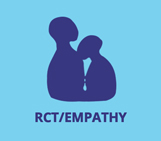International Projects
International Project of the IRCT, Local Partner in Georgia is RCT/EMPATHY, Georgia:
“Use of forensic evidence in the fight against torture” (Project no EIDHR/2007/71) - 01.01.2010-31.12.2010.
Cooperation in EU supported project on the use of forensic evidence in the prevention of torture
Further to previous communication on the above, we are pleased to advise that Georgia has been selected as one of the five target countries for the above project. We would therefore like to invite your organization to participate as one of IRCT’s local partners in the project. For ease of reference, a summary of the project objectives and role of the partners is described below.
This project aims to fight against impunity by strengthening the capacity for medical examination according to internationally recognised principles, i.e. the Istanbul Protocol, and generating forensic evidence that can be used in the prosecution of alleged torture cases in national and regional courts and/or human rights institutions.
The specific objectives are
National focal points will be set up in rehabilitation centres in five countries in five different regions to identify torture cases where examination support is needed and which could be taken forward to national or regional courts. Via the international focal point and the advisory forensic experts group, the expertise required to perform forensic examinations of torture survivors will be channelled to health professionals in the five target countries through on-case examination support and peer supervision.
The expert group will further provide support in examining torture victims in at least ten representative cases at the international, regional or national level to establish best practice examples. Thus, medical reports will be submitted in at least 15 court cases concerning allegations of torture in order to strengthen the evidentiary basis in these cases and will be supplemented by expert testimony in the proceedings.
Additionally, the international focal point and the expert group will map, gather and further develop materials relevant to the medical examination of torture victims and consequent legal proceedings. The involved experts will participate in relevant human rights and health conferences with a view to exchanging knowledge and presenting the project’s objectives and findings.
This work will be supported by targeted advocacy towards judges, prosecutors, lawyers and health professionals. Moreover, via campaigning and advocacy activities throughout the project, as well as a major conference at the conclusion of the project, policy-makers, health and legal professionals and the public at large will have a better understanding of and dedication to promoting the fight against impunity.
The project started on 2009 and will run for three years.
This project aims to fight against impunity by strengthening the capacity for medical examination according to internationally recognised principles, i.e. the Istanbul Protocol, and generating forensic evidence that can be used in the prosecution of alleged torture cases in national and regional courts and/or human rights institutions.
The specific objectives are
- To increase the availability of high quality forensic documentation concerning allegations of torture
- To use and facilitate victims’ access to forensic documentation as evidence in legal proceedings
- To increase awareness about the significance of medical forensic evidence, victims’ rights and state obligations under the UN Convention Against Torture to investigate and prosecute perpetrators
National focal points will be set up in rehabilitation centres in five countries in five different regions to identify torture cases where examination support is needed and which could be taken forward to national or regional courts. Via the international focal point and the advisory forensic experts group, the expertise required to perform forensic examinations of torture survivors will be channelled to health professionals in the five target countries through on-case examination support and peer supervision.
The expert group will further provide support in examining torture victims in at least ten representative cases at the international, regional or national level to establish best practice examples. Thus, medical reports will be submitted in at least 15 court cases concerning allegations of torture in order to strengthen the evidentiary basis in these cases and will be supplemented by expert testimony in the proceedings.
Additionally, the international focal point and the expert group will map, gather and further develop materials relevant to the medical examination of torture victims and consequent legal proceedings. The involved experts will participate in relevant human rights and health conferences with a view to exchanging knowledge and presenting the project’s objectives and findings.
This work will be supported by targeted advocacy towards judges, prosecutors, lawyers and health professionals. Moreover, via campaigning and advocacy activities throughout the project, as well as a major conference at the conclusion of the project, policy-makers, health and legal professionals and the public at large will have a better understanding of and dedication to promoting the fight against impunity.
The project started on 2009 and will run for three years.
